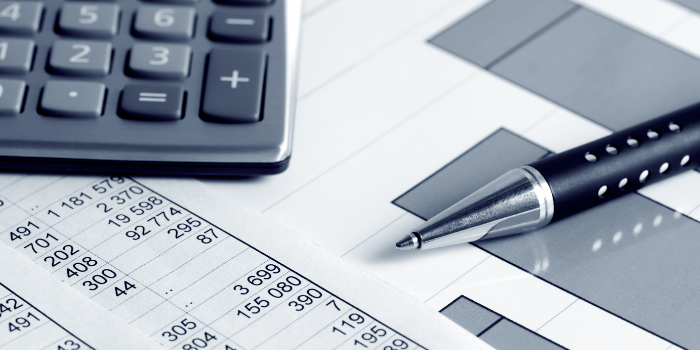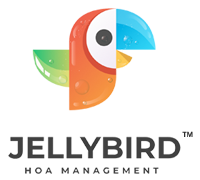One of the most important duties of an HOA’s Board of Directors is to manage the association’s finances. If you are new to accounting in general or just how accounting works for HOAs, this task can be intimidating when you’re just getting started.
Here, we’ll break down the different methods of accounting that HOAs use, the different types of financial documents you will encounter, and budgeting techniques to help give you a better understanding of HOA accounting basics.
Accounting Methods
First, what exactly is an accounting method? An accounting method is the rules that a business, or HOA, follows when recording income and expenses. In this section, we’ll break down the different accounting methods that are used by HOAs and how each method works.
The two basic accounting methods that we will break down are cash basis accounting and accrual basis accounting. These are the methods that businesses, like HOAs use, for managing their finances.
Cash Basis Accounting
With the cash basis method, revenue is recorded when it is received, and expenses are recorded when they are paid. This method gives a clear picture of the cash flowing into and out of a business’s accounts and should reflect the current funds available to it.
This method is used by most individuals for their personal finances, especially when it comes to their income tax. If you work a few days at the end of December, you likely wouldn’t be paid for that time until January. When it comes to your W-2, the income for those days would then be received and recorded in January.
Accrual Basis Accounting
Under the accrual method, revenue is recorded when it is earned, and expenses are recorded when they are incurred. This gives a picture of funds that are available each month and how much is being spent.
This is the method that most businesses use as it allows for better budgeting and planning. Though this method is more complex than cash basis accounting, it can provide a clearer picture of the relationship between a business’s revenue and expenses in a given period.
So Which Method Is Most Used by HOAs?
Now that you know the difference between cash basis accounting and accrual basis accounting, you might be wondering what method is best when it comes to managing your HOA. The answer to that question is—both! Most HOAs actually use a hybrid of these two methods, more commonly known as the modified accrual (or hybrid) method.
Typically, this means that HOAs will use accrual accounting to record revenue when it is earned, and a mix of cash and accrual accounting to record some (or all) expenses when they are paid and other expenses when they are earned.
Accounting Documents
Once you have a good grasp of the different accounting methods that are used by an HOA, it’s time to learn about the different types of financial documents that you will see when managing your HOA’s finances.
The Balance Sheet
The balance sheet compares the HOA’s current assets to its liabilities and equity by providing the totals of each item as well as any net income gains or losses. Let’s break down what some of those terms are referring to:
Assets – Everything the HOA owns, including the funds it has in the bank and the value of its property.
Liabilities – Items that the HOA owes, like unpaid bills and invoices.
Equity – The net value of the association, or what’s left over when the liabilities are subtracted from the assets. The higher an HOA’s equity, the greater its overall monetary value. So, if the balance sheet is balanced correctly, the total amount in the assets section should equal the total amount listed in the liabilities and equity section. By reviewing the balance sheet, you can see the value of each item the HOA owns, the total cash worth of the association, and the amount of money the HOA owes.
The Income Statement
The income statement is a great tool for assessing where your HOA is money-wise. This report provides a comparison of the HOA’s actual spending to the amount the HOA has budgeted for each item. It also displays the difference between those two amounts. With this tool, your board can see how close they are to staying on track with the budget, pinpoint any overspending, and properly prepare for future expenses, as needed.
The General Ledger Report
The general ledger report provides detailed information for tracking financial transactions for the association. It lists each individual transaction with a general ledger code that ties it to its specific budget item, making it easy to sort and categorize.
Bank Statements
To ensure the accuracy of all HOA financial documents, we recommend comparing them to the actual bank statement that the HOA receives. If the bank account balance doesn’t match the balance listed on the HOA’s balance sheet, often there is an amount that wasn’t recorded properly.
To compare these two amounts, you’ll need to keep in mind that uncleared checks and pending deposits will not appear on the bank statement, so the bank statement will need to be reconciled by adding and subtracting these amounts as needed.
Managing Your Budget
With a clear, well-planned budget, you can enhance the quality of life for your community members and raise the value of the association. Your annual budget will dictate how much spending is needed to effectively run your HOA, where this spending is needed, and how much needs to be saved for unexpected expenses and community improvements.
Here are some tips that can help you get started with planning your association’s budget:
Think About Your Goals: By laying out what your association hopes to achieve in the upcoming year, that can help you set your budget accordingly and map out any costs that may be associated with those plans.
Refer to the Previous Year’s Budget: Reviewing your finances from the previous year can not give you an idea of what your new budget might look like, but it can also help you identify areas where overspending occurred or where cost cutting can be implemented.
Take You Reserve Study—and Use It: A reserve study is a long-term forecast for your HOA’s finances, which makes it a vital tool when it comes to planning an annual budget. Reference the reserve study to identify any major upcoming repairs or maintenance that might be needed in the upcoming year.
Review Vendor Contracts: Determine whether there may be any increases or decreases in the vendor or contractor costs for the upcoming year.
We hope that this article is helpful with getting you started with working with your HOA’s finances.
If you’re needing a more in-depth review of HOA accounting, be sure to check out our sister site, Boardline Academy, where you can find courses that thoroughly teach everything you need to know about HOA bookkeeping and association finances.

